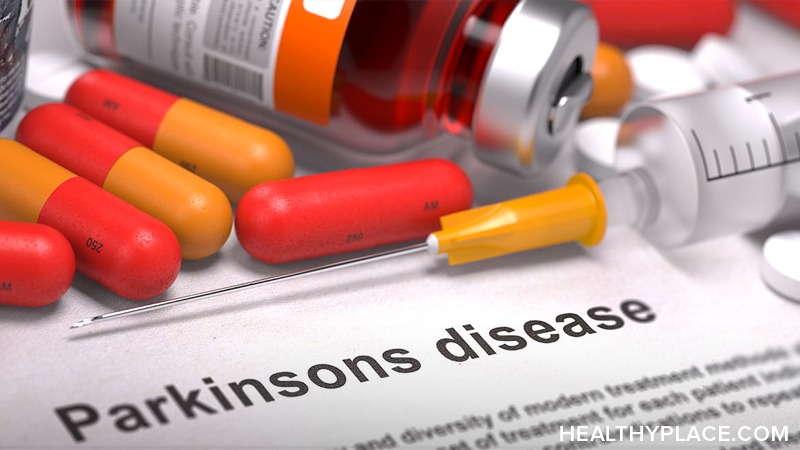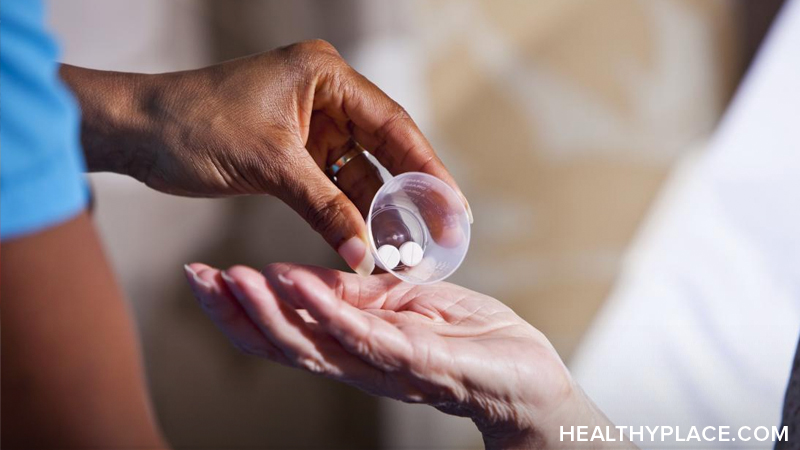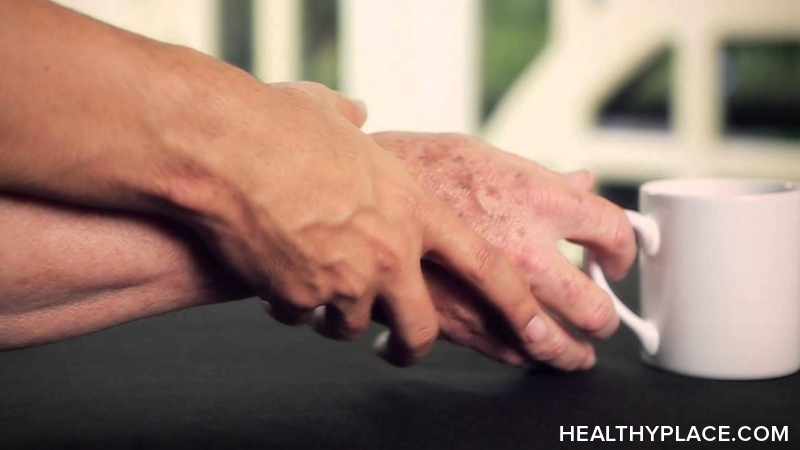Could Stem Cell Treatment for Parkinson’s Disease Be the Holy Grail?

According to scientists, treating Parkinson’s disease with stem cells takes us one step closer to a cure. This signals a major breakthrough in the treatment of Parkinson's disease. We know that clinical trials are taking place all over the world to test out the validity of these claims, but could stem cell treatment for Parkinson’s disease really be the holy grail everyone assumes it is? And are there possible risks and challenges? Let’s explore the facts around treating Parkinson’s disease with stem cells and find out if it's possible.
Treating Parkinson’s Disease with Stem Cells: Is It Possible?
Treating Parkinson’s disease with stem cells is possible, but it is also complicated. In Parkinson’s disease, the neurons that create dopamine in the brain slowly die, which is what causes loss of control over movement and many of the motor symptoms associated with the disease ("Parkinson’s Disease Effects on the Body? Tremor, Motor Symptoms"). Scientists are currently looking for ways to emulate dopamine using renewable cells. In this case, that means using embryonic stem cells.
A breakthrough study in Sweden showed that it was possible to generate dopamine cells to behave like regular dopamine cells when transplanted into the brains of rats. The next step is to prepare for human clinical trials, many of which have already begun.
What Does This Mean for the Treatment of Parkinson’s Disease?
Currently, stem cell treatment for Parkinson’s disease has only been successfully tested on rats. However, this breakthrough has opened the door for clinical application in a matter of years, not decades.
According to Claire Bale, Head of Research Communications at Parkinson’s UK:
"Stem cells carry real hope as a future treatment for the 127,000 people living with the condition in the UK. Parkinson's UK has invested more than £3 million in cutting-edge stem cell research to help develop new and better treatments for Parkinson's, faster."
Scientists also warn that research into using stem cells to treat Parkinson’s disease is still in its early days. There are challenges to stem cell treatment for Parkinson's disease that must be resolved before they can be used clinically.
One obstacle many scientists face is that stem cells can divide indefinitely. This means that stem cells can become every cell in your body rather than just in the brain, making them difficult to harness. The upside to this is that scientists can create an indefinite amount of stem cells and roll them out to hundreds of thousands of patients and transplant them into the brain to replace dead dopamine cells. Another challenge will be keeping these stem cells alive for a long period.
In short, stem cell treatments will become available to people with Parkinson's once they have been thoroughly tested and proven to be safe-.
Want to Know More? Here’s How You Can Get Involved
If you want to get involved in stem cell research, you can register to participate in a clinical trial. Trials desperately need Parkinson’s subjects, and many lack the funding they need. If you can help at all, visit the Michael J. Fox Foundation for Parkinson’s Research website and use the Fox Trial Finder to search for opportunities in your area. There is no obligation once you’ve registered your details, and if you have any questions about treating Parkinson's disease with stem cells or any other clinical trials, there are plenty of helpful trial FAQs on the website.
APA Reference
Smith, E.
(2022, January 28). Could Stem Cell Treatment for Parkinson’s Disease Be the Holy Grail?, HealthyPlace. Retrieved
on 2025, November 11 from https://www.healthyplace.com/parkinsons-disease/treatment/could-stem-cell-treatment-for-parkinsons-disease-be-the-holy-grail
Natural, Homeopathic Treatments for Parkinson’s Disease. Really?!

Many people find it hard to believe in natural treatments for Parkinson’s disease, and with good reason. If you have been newly diagnosed, you will likely find information on natural, homeopathic treatment for Parkinson’s disease all over the Internet. But do these treatments work or are they just a scam? Let’s explore the more credible natural treatments for Parkinson’s disease while dispelling some of the myths.
Natural Treatments for Parkinson’s Disease: The Facts
It's important to note that there is currently no cure for Parkinson's disease, natural or otherwise. However, many patients find that medication combined with physical exercise and home remedies help them control their symptoms and live well with the condition. No treatment will stop your Parkinson's disease from progressing. However, homeopathic treatments for Parkinson's disease have been successful at controlling symptoms in many cases.
Here are the facts surrounding natural and homeopathic treatments for Parkinson’s disease:
Diet as a Natural Treatment for Parkinson’s Disease
Eating healthy can be a natural treatment for Parkinson’s disease. While there is no one diet recommended for Parkinson’s disease patients, there are some positive changes you can make to your eating habits to ease your symptoms.
These include:
- Eating more fiber: Constipation is a common symptom of Parkinson’s disease, which is why the Michael J. Fox Foundation for Parkinson’s Research recommends eating plenty of fruits, whole grains and vegetables.
- Drinking 6-8 glasses of water per day: Include a warm drink in the morning to help stimulate bowel movements.
- Consuming more salt: Parkinson's disease can cause low blood pressure, which is why some doctors recommend upping your salt and fluid intake to bring it back up. You should always talk to your medical provider before increasing your salt intake, especially if you have heart or kidney problems.
- Cut out caffeine and alcohol: These encourage dehydration and lower blood pressure.
- Antioxidants: There is some research to suggest that eating foods high in antioxidants – such as apples, dark chocolate, eggs and legumes – can offset some of the cellular damage caused by Parkinson's disease. Again, you should always talk to your doctor before making drastic changes to your diet.
Exercise, Tai Chi as Alternative Treatments for Parkinson’s Disease
Daily exercise is recommended for most Parkinson's patients in the early stages of the disease. Your doctor may refer you to a physical therapist and suggest you take up swimming, yoga or gardening to improve your balance and muscle strength. Physical activity can also help combat the mental health implications of Parkinson's disease, such as anxiety and depression.
Other alternative treatments for Parkinson’s disease include tai chi, yoga, massage, acupuncture and guided meditation. It’s important to remember that none of these natural remedies will cure Parkinson’s, and many are inefficient at combatting symptoms on their own.
Supplements and Homeopathic Treatments for Parkinson’s Disease
There is little evidence that supplements and other homeopathic treatments can help with the symptoms of Parkinson’s disease. In fact, many supplements can have adverse effects when mixed with certain medications. Iron pills, for example, can decrease the absorption of levodopa, a common drug given to Parkinson’s patients. If you must take an iron supplement, your doctor will suggest you space them out to limit their interference with other medications.
Supplements that have been found to improve the general health of those with Parkinson’s disease include:
- Coenzyme Q10: An antioxidant currently being used in clinical trials.
- Creatine: An amino acid that can be used as an energy source for muscles and the brain.
- Vitamins C and E: These are both antioxidants that one study found delayed the need for medication in newly diagnosed patients.
- Curcumin: An antioxidant found in turmeric with anti-inflammatory and anti-cancer properties.
You may also want to ask your doctor about herbal treatments for Parkinson’s disease symptoms, such as depression, insomnia and anxiety. Some Parkinson’s patients find St. Johns Wort to be helpful at easing the non-motor symptoms of the disease.
Treating Parkinson’s Disease Naturally: What You Should Know
It’s important to use good judgment when researching alternative treatments for Parkinson’s disease. As a general rule, you should always avoid any products that claim to cure Parkinson’s disease, whether they are natural or not. There is no scientific evidence that any medication, surgery or natural remedy can get rid of the disease entirely.
Many people think that the word "natural" means a product is safe and won't cause any side-effects, but this isn't always the case. You should always consult your doctor before trying new medications, herbal supplements or homeopathic treatments, as some may interact with your Parkinson's medications or have adverse effects.
Natural remedies can be beneficial when used alongside the right Parkinson's medication and physical therapy plan. However, you shouldn't rely on natural treatments for Parkinson’s disease without guidance from your doctor. Patients with Parkinson’s usually have to take medications to ease the symptoms of their condition, but many of these are gentle with few side-effects – particularly those used in the early stages.
APA Reference
Smith, E.
(2022, January 28). Natural, Homeopathic Treatments for Parkinson’s Disease. Really?!, HealthyPlace. Retrieved
on 2025, November 11 from https://www.healthyplace.com/parkinsons-disease/treatment/natural-homeopathic-treatments-for-parkinsons-disease-really
Is There a Cure for Parkinson’s Disease?

Many people wonder: is Parkinson's disease curable? Unfortunately, at this time, there is no way to prevent Parkinson's disease from progressing when you are diagnosed. The good news is, there are plenty of treatment options available to Parkinson's patients, including medications that can control symptoms for months or years without intervention. While Parkinson's disease isn't curable, there are also lifestyle changes, homeopathic treatments and natural remedies for Parkinson’s disease symptoms worth exploring.
Why Isn’t Parkinson’s Disease Curable?
With decades of research into this illness, why haven’t scientists found a cure for Parkinson’s disease? Unfortunately, the brain isn't straightforward, and every case of Parkinson's presents slightly differently. As such, there are no specific biomarkers for the disease, making it hard to diagnose and even harder to treat.
The bottom line is, there is still a lot about the brain that we don't understand. Parkinson's is a complex disease and many unanswered questions about Parkinson's remain. On top of all of this, recruitment for clinical trials can be difficult, and many get delayed for this reason.
The Future of Parkinson’s Disease: What We Know
In the past 50 years, researchers have made vital discoveries about Parkinson’s medications and treatments, and we now have a better understanding of what causes Parkinson’s disease – including its genetic component. With the right investment, researchers predict we will be able to find a Parkinson’s disease cure in a matter of years, not decades.
Researchers also recognize that, as the disease presents so differently in each patient, there may not be a single "cure" for Parkinson's disease. However, scientists believe that the right combination of treatments, therapies and strategies (such as new drugs and brain surgery for Parkinson's) could stop the progression of the disease entirely.
Clinical trials are taking place in the following areas:
- Stem cell treatment: This approach will use healthy, live cells to replace or repair the damage in the brains of Parkinson’s patients ("Could Stem Cell Treatment for Parkinson’s Disease Be the Holy Grail?").
- Gene therapies: This treatment will use genetics to reprogram cells in the brain and change their behavior, helping them stay healthy for longer.
- Growth and development of brain cells: This approach will use naturally-occurring molecules to help brain cells survive.
- Medications: Scientists are testing existing medicines that are used to treat other conditions, such as high blood pressure, diabetes and cancer, to see if they pose any benefits for people with Parkinson's disease.
Is There a Natural Cure for Parkinson’s Disease?
While many of us wish there was a natural cure for Parkinson's disease, nothing – natural or otherwise – has been proven to stop the symptoms completely. There are, however, natural remedies that many Parkinson's patients find useful when managing their conditions.
Natural remedies for Parkinson’s disease include:
- Exercise can be highly effective at helping Parkinson’s patients strengthen their muscles, improve flexibility and care for their mental health.
- Nutrition is also important. The Michael J. Fox Foundation for Research claims that, while no single diet can treat Parkinson’s disease, you should generally try to stick to a healthy, balanced diet rich in fruits and vegetables. The Foundation also recommends avoiding fermented, aged or cured food products, as these can elevate blood pressure when mixed with certain Parkinson’s medications.
- Alternative therapies like yoga, acupuncture, massage and hypnosis are generally thought to be safe for people with Parkinson’s disease, and many patients find them helpful. However, you should always check with your doctor before trying new exercises or homeopathic treatments for Parkinson's.
- Antioxidants have many health benefits, and there is some evidence to suggest that they can even offset the cellular damage caused by Parkinson’s disease. Antioxidant-rich foods include dark chocolate, eggs, legumes, artichokes, bell peppers, potatoes, grains, apples and more.
One of the first questions you might ask when you are diagnosed is: "Is there a cure for Parkinson's disease?" Unfortunately, we're not quite there yet. However, scientists are edging closer to a cure, and new research is surfacing all the time. If you want to help speed up a cure for Parkinson's disease, you can take part in a clinical trial, such as the ones listed on the Michael J. Fox Parkinson's Foundation website.
APA Reference
Smith, E.
(2022, January 28). Is There a Cure for Parkinson’s Disease?, HealthyPlace. Retrieved
on 2025, November 11 from https://www.healthyplace.com/parkinsons-disease/treatment/is-there-a-cure-for-parkinsons-disease
Avoid These Parkinson’s Medications

Medication can be extremely helpful to those with Parkinson's disease, but there are still Parkinson's disease medications to avoid. Your doctor will make treatment recommendations based on your symptoms and how you react to certain medications. Therefore, a drug that works for another person with Parkinson's might not work for you. Some patients find that the side-effects of some medications outweigh the benefits, which is why it's important to understand your options before making decisions about your treatment. Other patients find that they cannot take certain drugs with Parkinson's disease. Here are some Parkinson's disease medications to avoid, and some suggested alternatives.
Parkinson’s Disease Medications to Avoid
Doctors avoid prescribing certain medications to Parkinson’s disease patients for various reasons. Before deciding on a treatment plan, your doctor will assess your general health and consider any allergies or intolerances you might have. He or she will judge the best course of treatment based on your age, health status, medical history and existing medications. However, there are some drugs (including Parkinson's disease medications) which most doctors will avoid. These include:
- Trihexyphenidyl and benztropine
People with Parkinson’s disease have lower levels of dopamine. This is the chemical that, among other things, controls movement through electrical signals in the brain. Most medications, therefore, work to increase the levels of dopamine in the brain or mimic its effects so that patients experience fewer symptoms.
Unlike dopamine agonists, trihexyphenidyl and benztropine work by restoring the balance of dopamine and acetylcholine in the brain, which can be helpful for controlling tremors and involuntary movements. However, the long-term side-effects of these medications (such as memory loss) can be severe, particularly in older patients. Doctors rarely prescribe trihexyphenidyl and benztropine today, so these are Parkinson's disease medications to avoid.
- Some cold remedies, such as decongestants
Some over-the-counter (OTC) cold and flu medications can interact with Parkinson’s disease medications. You should always check with your doctor or pharmacist about which OTC medications are safe to use.
- Anti-nausea medications
While anti-nausea medications like Motilium (domperidone) are effective at treating nausea caused by levodopa, they can also cause heart problems in older patients. Therefore, you should always check with your doctor before taking anti-nausea medications if you are over the age of 60. Alternatives deemed to be safe for those with Parkinson's disease include cyclizine (Valoid) and 5-HT3 receptor antagonists like ondansetron.
- Chlorpromazine (Largactil)
This medication is commonly used to treat mood disorders such as bipolar disorder and schizophrenia. However, it can also cause shakiness, which is why it is not recommended for those with Parkinson’s disease. If you take Largactil, your doctor may suggest another mood stabilizer to help you manage your symptoms.
Remember: Your Doctor Knows Best
It is worth noting that, when it comes to treating Parkinson's disease, your doctor always knows best. He or she may decide that the risk of side-effects is minimal or that the benefits of the medication will outweigh the negatives. If you disagree with your doctor's decision, or you think there are Parkinson's disease medications you'd like to avoid, don't be afraid to get a second opinion. Parkinson's is a progressive illness, so it's important that you find a medical provider you can trust who will provide care and support for the long-haul.
Many patients have to try several Parkinson's disease medications before they find a combination that works for them. However, your doctor will always start you on the medication with the least side-effects to see if it can control your Parkinson's symptoms. Your medicine will be increased gradually over time, and other drug combinations will be tried if your symptoms progress or a medication stops working.
See Also:
Parkinson’s Disease Medications: Effectiveness & Side-Effects
Parkinson’s Disease Medication List: Can These Meds Help You?
APA Reference
Smith, E.
(2022, January 28). Avoid These Parkinson’s Medications, HealthyPlace. Retrieved
on 2025, November 11 from https://www.healthyplace.com/parkinsons-disease/treatment/avoid-these-parkinsons-medications
Parkinson’s Disease Medication List: Can These Meds Help You?

Looking for a list of medications for Parkinson's disease? We've listed all the drugs most commonly prescribed to Parkinson's patients, so you can better understand your options. Remember that whether you are newly diagnosed, or your Parkinson's is progressing, your doctor will be able to advise you on the best medications to take to control your Parkinson’s disease symptoms. Whichever stage you're at, here is a Parkinson's disease medication list to help you gain better insight into your Parkinson’s treatment.
The Parkinson’s Disease Medication List
Medication can be extremely helpful for Parkinson's patients. It doesn't cure the disease or stunt its progression, but it can be highly effective at treating the symptoms. Tremors, slowed movement and rigidity can negatively impact your quality of life with Parkinson's disease, which is why most doctors will recommend a combination of medication, exercise and positive lifestyle changes to help you manage your symptoms.
So, when it comes to Parkinson's disease medications, what are your options? Here is a list to help you understand which drugs are available.
- Carbidopa-levodopa (Sinemet): Levodopa converts natural chemicals into dopamine in your brain. Carbidopa (also known as Lodosyn) prevents the early conversion of dopamine outside your brain and helps control the side-effects of levodopa, such as nausea and light-headedness. Sinemet can also be given intravenously to patients with advanced Parkinson’s disease.
- Safinamide (Xadago): Safinamide is usually prescribed by doctors when a medication like Sinemet stops working. Safinamide often helps Parkinson's patients go longer without experiencing symptoms. Side-effects include difficulty falling or staying asleep, nausea and involuntary movements.
- Selegiline (Eldepryl, Zelapar) and rasagiline (Azilect): This medication blocks the breakdown of dopamine in your brain, which in turn lessens symptoms such as uncontrolled movement and rigidity. According to WebMD, there is some evidence to suggest that selegiline can slow the progression of Parkinson's, although it doesn't stop symptoms completely. Side-effects of selegiline include dizziness, fainting and stomach pain.
- Dopamine agonists: Dopamine agonists mimic dopamine effects in your brain. People with Parkinson’s disease don’t produce enough dopamine, which is what causes movement problems in all stages of the disease. There are some reported psychological side-effects of dopamine agonists, including compulsive behavior and hallucinations.
- Amantadine (Symmetrel): This medication is prescribed to patients in the early stages of Parkinson's disease. Amantadine can also be taken in the later stages of Parkinson's disease to control involuntary movements. Many patients take Amantadine and Sinemet together. Side-effects of this drug include confusion and problems with memory.
Medication Tips for Treating Parkinson’s Disease
Your doctor will determine the best combination of Parkinson's disease medications for you, as well as how and when to take them. There are also some general guidelines to consider:
- Keep a Parkinson’s disease medication list and note down how and when you should take each drug. This can be helpful if memory problems crop up and someone else has to administer medications for you.
- Always take your medications as your doctor prescribes. Write it down or bring a family member to your appointment if you think you’ll forget.
- Store your medications in a dry, safe place, unless your doctor advises you to keep them in the fridge.
- Throw away expired medications.
- Remember to order your prescriptions in advance.
- Always take extra medication with you when you travel.
- Don’t change your dose or stop taking your medication unless your doctor tells you to.
- Take your medication at the same time every day. Keep them in a pill case and set an alarm to remind yourself to take them, especially if you live alone.
- Physical exercise can help the body absorb medication, so try to move as much as possible.
If you have any questions about this Parkinson's disease medication list, consult your doctor. He or she will be able to answer your questions and advise you on how and when to take your medication. You should also seek medical advice if you're struggling with the side-effects of a particular drug or you want to try something different.
There are plenty of treatment options for Parkinson’s disease, and there is no one medication that will work for you. However, you should always consult your doctor before stopping your medication or changing your dose, as this could lead to your symptoms worsening.
See Also:
Avoid These Parkinson’s Medications
Parkinson’s Disease Medications: Effectiveness, Side-effects
APA Reference
Smith, E.
(2022, January 28). Parkinson’s Disease Medication List: Can These Meds Help You?, HealthyPlace. Retrieved
on 2025, November 11 from https://www.healthyplace.com/parkinsons-disease/treatment/parkinsons-disease-medication-list-can-these-meds-help-you
Parkinson’s Disease Medications: Effectiveness & Side-Effects

Parkinson's disease medications are prescribed by doctors to treat common symptoms associated with the condition. While there is no cure for Parkinson’s, the right combination of medications and physical therapy helps most patients control their Parkinson’s symptoms. So, when it comes to treatment, what are your options? Let’s explore common Parkinson’s disease medications, along with their effectiveness, side-effects and warnings.
Parkinson’s Disease Medications: The Facts
There have been many developments in Parkinson's disease treatments in recent years. As such, doctors now have a greater understanding of traditional Parkinson's disease medications and their side-effects. Scientists have also developed new drugs to help control tremors, slowed movement and other Parkinson's symptoms.
Before we explore the best medication for Parkinson's disease, it's important to address the facts. Firstly, Parkinson's disease medications cannot cure your condition, nor will they slow down the progression of your symptoms. These medications are prescribed to help patients live independently and improve their quality of life.
It's important to note that some patients do not respond well to Parkinson's disease medications. In this case, there are plenty of other treatment options to consider – such as homeopathic remedies, physical therapy and surgical intervention. Again, none of these treatments provides a cure, but they can help ease or control your symptoms.
Medication for Parkinson’s Disease: Side-Effects and Effectiveness
After a Parkinson's disease diagnosis, your doctor will suggest possible treatment options. The medications most commonly prescribed by doctors include:
Levodopa-carbidopa (Sinemet)
Sinemet (consisting of levodopa and carbidopa) is the most commonly prescribed drug for Parkinson's disease. Sinemet helps control symptoms such as slow movements and rigidity. Levodopa works by converting natural brain chemicals into dopamine, while carbidopa is taken alongside levodopa to make it more effective. Carbidopa also eases the side-effects of levodopa, including:
- Nausea
- Vomiting
- Irregular heart rhythm
- Light-headedness
It also helps control long-term side effects of levodopa (after 3-5 years), such as:
- Restlessness
- Confusion
- Unusual or unexpected movements
Sinemet has few side-effects compared to other Parkinson's disease medications, but it does increase your risk of sudden, involuntary movements – known as dyskinesia. Your doctor can work with you to prevent some of these side-effects or help you manage them with other medications.
Safinamide (Xadago)
Safinamide is often prescribed by doctors as an add-on to levodopa and carbidopa when a medication like Sinemet stops being effective. Safinamide can help you go longer without experiencing symptoms. Common side effects of this medication include:
- Difficulty sleeping
- Nausea
- Uncontrolled movements
- Increased risk of falls
Dopamine agonists
Dopamine agonists act like dopamine cells in the brain. They are usually prescribed by doctors first to see if they can control your symptoms. Many doctors will add in medicine like Sinemet as your disease progresses, especially if your symptoms are not under control.
You can take dopamine agonists on their own or alongside Sinemet without any long-term problems. However, short-term side effects include:
- Nausea
- Vomiting
- Headaches
- Dizziness
- Confusion
- Hallucinations
Selegiline (Eldepryl, Zelapar) and rasagiline (Azilect)
Selegiline works by blocking the brain chemicals that break down dopamine, thus increasing the supply in your brain and easing your motor symptoms. Some evidence shows that this medication can prolong the progression of Parkinson's disease, especially in the early stages. However, common side effects of Selegiline include:
- Nausea
- Stomach pain
- Indigestion
- Fainting
- Dizziness
- Headaches
- Joint pain
- Depression
Amantadine (Symmetrel)
Amantadine is the best medication for Parkinson’s disease patients with mild symptoms. Like other medications, it works by raising the amount of dopamine in your brain which reduces involuntary movement and tremors. Side-effects include confusion and memory problems.
Trihexyphenidyl and benztropine
These drugs help restore the balance in your brain between dopamine and acetylcholine. As such, trihexyphenidyl and benztropine were often used as Parkinson's disease tremor medications in the past. However, they can also affect thinking and memory, particularly in older patients, which is why doctors rarely prescribe them today.
Understanding Parkinson’s Disease Medications
Learning about Parkinson's disease and the side-effects of your medication can be daunting at first. However, there is no telling how these medications will affect you until you've tried them with medical guidance. Your doctor will prescribe you the most effective drug with the least number of side-effects first to see if this works for you. They will then increase your medication gradually or switch you to another course of treatment.
If you have questions about Parkinson's disease medications and side-effects, talk to your doctor. Whether you've been newly diagnosed or you're experiencing advanced symptoms, having a trusted medical advisor in place will help you make the right choices when it comes to treating your Parkinson's disease.
See Also:
Avoid These Parkinson's Medications
Parkinson’s Disease Medication List: Can These Meds Help You?
APA Reference
Smith, E.
(2022, January 28). Parkinson’s Disease Medications: Effectiveness & Side-Effects, HealthyPlace. Retrieved
on 2025, November 11 from https://www.healthyplace.com/parkinsons-disease/treatment/parkinsons-disease-medications-effectiveness-side-effects
Parkinson’s Disease Treatment and Prognosis

If you are newly diagnosed, you might be anxious to learn about the different types of Parkinson's disease treatments, as well as their efficacy and side-effects. While there is no cure for Parkinson's disease, the right treatment can help control your symptoms and improve your quality of life. With this in mind, which is the best Parkinson's disease treatment for you, and could it affect your prognosis?
Parkinson’s Disease Treatment: What Are My Options?
There are various treatment options for Parkinson's disease. After you receive a formal Parkinson's diagnosis, your doctor will explore these possibilities with you. Common Parkinson's disease treatment options include:
- Medication
- Physical therapy/exercise
- Surgical intervention
- Home remedies for Parkinson's
- Lifestyle changes
Your doctor may recommend one medication or a combination of Parkinson's disease treatments. Your course of treatment will depend on various factors, such as:
- The progression of Parkinson's symptoms
- Any other medical conditions in you or your family
- Other prescribed medications
- Your age and overall health status
Before you and your doctor can decide which treatment is right for you, you will need to explore treatment options for Parkinson's disease in more detail.
Which Is the Best Treatment for Parkinson’s Disease?
Let’s explore your options so that you know what to expect when you attend your first doctor’s appointment.
Medication for Parkinson’s Disease
Although there is currently no treatment that can slow or stop the progression of Parkinson's disease, medication can help you manage the symptoms of Parkinson’s disease. Medicines prescribed for Parkinson's patients include:
- Carbidopa-levodopa (Sinemet): Levodopa is a drug that converts natural chemicals into dopamine in your brain. Carbidopa (also known as Lodosyn) prevents the early conversion of these chemicals outside your brain, which is why it is combined with levodopa. Carbidopa also helps control the side-effects of levodopa, such as nausea and light-headedness. This medication can also be administered intravenously for patients with advanced Parkinson's disease.
- Dopamine agonists: Instead of converting natural chemicals into dopamine, dopamine agonists mimic dopamine cells in your brain. Side-effects of this medication include compulsive behavior, sleepiness and hallucinations.
- Amantadine: This medicine can be prescribed as short-term Parkinson's disease treatment to help ease symptoms in the early stages. It is often given alongside carbidopa-levodopa. Amantadine is also prescribed in the later stages of Parkinson's disease to help control involuntary movements. Some patients report side effects such as mottling of the skin, swollen ankles and hallucinations.
Other medications for Parkinson’s disease include MAO B inhibitors, catechol O-methyltransferase (COMT) inhibitors and anticholinergics. Your doctor will explain all of these medications to you and help you decide on the best treatment option.
Physical Therapy and Exercise
Doctors usually recommend exercise to Parkinson’s patients as it helps improve muscle strength, balance and flexibility. Your doctor may also refer you to a physical therapist. You might also decide to try swimming, stretching or dancing. Not only do these activities have physical health benefits, but they can also help ward off depression and anxiety in Parkinson’s patients. Physical activities like gardening also provide therapeutic benefits.
Surgical Intervention: Deep Brain Stimulation
Surgery is sometimes offered to patients in the late stages of Parkinson’s disease, or to those who don’t respond well to Parkinson’s medication. The procedure is called deep brain stimulation (DBS), and it involves surgeons implanting electrodes into parts of your brain and connecting them to a generator in your chest. The electrodes then send signals to your brain to help it coordinate movement.
Surgery won't stop your Parkinson's from progressing, but it can help you control the symptoms. However, DBS also comes with an increased risk of strokes, infections and brain hemorrhaging, which is why it is usually offered as a last resort ("How Effective is Brain Surgery for Parkinson’s Disease?").
Home Remedies and Lifestyle Changes
In addition to exercising and taking medication, your doctor may suggest you adjust your lifestyle to help you control your symptoms, Positive lifestyle changes include healthy eating, drinking plenty of fluids and attending Parkinson’s support groups. You may also want to research home remedies such as massage, tai chi and yoga – all of which can be helpful to those with Parkinson's disease.
What Is My Parkinson’s Disease Prognosis?
The outcome of Parkinson’s disease varies from person to person, though women with the disorder tend to live longer than men. If you or a loved one has recently been diagnosed with Parkinson’s, you may be wondering about the course of your illness and your life expectancy. While there is no definitive prognosis for Parkinson’s, most doctors agree that the disease itself is not fatal. Health complications such as deep vein thrombosis and arterial blockage in the lungs can, however, shorten your lifespan with the condition, regardless of your age or gender.
These possible health complications may sound scary, but as long as you seek treatment, your life expectancy with Parkinson’s disease shouldn’t differ much from that of the general population.
Will Parkinson’s Disease Treatment Affect My Prognosis?
While no treatment will affect your Parkinson's disease prognosis, many patients find that a combination of medication, physical therapy and positive lifestyle changes help them control the symptoms of Parkinson's – even in the late stages of the disease.
If you have any questions about your diagnosis or you're concerned about your treatment options, talk to your doctor. You can also seek advice and support from the National Parkinson’s Foundation Helpline by calling 1-800-4PD-INFO (473-4636).
APA Reference
Smith, E.
(2022, January 28). Parkinson’s Disease Treatment and Prognosis, HealthyPlace. Retrieved
on 2025, November 11 from https://www.healthyplace.com/parkinsons-disease/treatment/parkinsons-disease-treatment-and-prognosis
Inbrija, FDA Approved for Parkinson’s OFF Episodes

Inbrija is a new, on-demand treatment for Parkinson’s disease. It's used specifically to treat patients who experience Parkinson's OFF episodes during a carbidopa/levodopa regimen. After two decades of research and development by the company, Acorda Therapeutics, the drug was approved by the FDA in December 2018 following a series of successful clinical trials. This new drug launch marks a breakthrough in Parkinson's research, but what exactly is Inbrija and what does it do? Find out here.
What Does Inbrija Do?
Inbrija (levodopa inhalation powder) is prescribed to treat OFF periods in Parkinson’s disease patients. It administers levodopa to the bloodstream via the lungs through an inhaler. Because the medication does not depend on absorption in the digestive tracts, patients receive a higher dose of levodopa than traditional oral medicine can provide, meaning their symptoms are better controlled.
OFF episodes are thought to result from low levels of dopamine between doses of carbidopa/levodopa. They can be unpredictable and appear more frequently over time. While levodopa is successful at controlling symptoms for most patients, the absorption of oral medication can be variable, and it becomes less effective as Parkinson's disease progresses. This is why the majority of PD patients experience OFF episodes marked by a return in parkinsonian symptoms.
The new FDA approved Inbrija treatment is a breakthrough in Parkinson's research and is expected to improve the lives of many people living with PD.
How Do You Take Inbrija?
You can administer Inbrija yourself through oral inhalation. If you are prescribed Inbrija, you will receive an inhaler and Inbrija capsules. The inhaler is breath-activated, so you do not need to press or control it. It will also make a whirring sound so that you know it is working. Inbrija capsules must be inhaled and not swallowed. You can use the inhaler up to five times a day, depending on your doctor’s instructions.
What are the Side Effects of Inbrija for Parkinson’s?
According to the results of various clinical trials, the most common side-effects of Inbrija are:
- Cough
- Upper respiratory tract infection
- Nausea
- Discolored sputum (brown, green or yellow phlegm)
Less common side-effects include:
- Daytime sleepiness or falling asleep during normal activities
- Confusion
- Withdrawal-emergent hyperpyrexia (fever of over 106.7°F)
- Low blood pressure
- Hallucinations
- Psychosis
- Dyskinesia (sudden, involuntary movement)
- Bronchospasm (narrowing of the airways)
If you experience any of these side effects while taking Inbrija, you should consult your doctor immediately.
If you have asthma, COPD or chronic lung disease, your doctor may advise against taking this medication. Inbrija is also unsuitable for patients taking nonselective monoamine oxidase inhibitors – such as certain antidepressants or anxiolytics. Similarly, patients taking MAO-B inhibitors for PD are not advised to take this medication.
If you’re in any doubt as to whether Inbrija is the right treatment for you, talk to your doctor. You can find more information on the Inbrija website, where you can register for updates and access patient resources.
APA Reference
Smith, E.
(2022, January 28). Inbrija, FDA Approved for Parkinson’s OFF Episodes, HealthyPlace. Retrieved
on 2025, November 11 from https://www.healthyplace.com/parkinsons-disease/treatment/inbrija-fda-approved-for-parkinsons-off-episodes
New Treatments for Parkinson’s Disease OFF Episodes

If you have Parkinson's disease, new treatment options might help you manage your symptoms more effectively. Even if you take antiparkinsonian medication successfully, most levodopa medications stop being effective after a while. When this happens, patients usually experience OFF periods where their symptoms temporarily return. To minimize the physical and emotional effects of the ON/OFF phenomenon, doctors are constantly testing out new treatment options for Parkinson's disease. Let's look at some of the latest drugs and how they might help you.
What Are OFF Episodes?
Firstly, it’s important to understand what OFF episodes are and why they happen. OFF episodes are defined as a temporary returning of Parkinsonian symptoms such as tremor, rigidity, loss of postural reflexes and memory problems, while taking levodopa medication. OFF episodes affect the majority of people with PD, and it can occur at any stage of the illness.
Some patients experience OFF episodes when they first wake in the morning – known as akinesia – while others notice symptoms returning at the end of a dose when the drug starts to wear off. For some, the OFF episodes are random and severe. Uncontrolled Parkinson's symptoms can significantly impact your quality of life, which is why scientists are committed to finding new and improved treatment options.
The Latest Treatment for Parkinson’s Disease
Inbrija is the latest treatment for Parkinson's disease. It was approved by the Food and Drug Administration (FDA) in late 2018 after two decades of research and development. Inbrija is a new form of levodopa that allows systemic delivery of the medication through inhalation, allowing higher doses of medication to enter the bloodstream.
This new drug from Acorda Therapeutics will treat the intermittent symptoms of OFF episodes on demand and comes in the form of a powder capsule and inhaler. Inbrija is the first and only inhaled levodopa medication to be approved for Parkinson’s disease by the FDA. It is available by prescription through your doctor.
The Michael J. Fox Foundation helped to fund the early development of this new treatment for Parkinson's disease due to the impact OFF periods have on patients' lives.
Will New Treatments Really Help?
According to multiple clinical studies, treatment with Inbrija led to significant improvement in motor function, with an onset of 10 minutes. A review of 900 patients showed a reduction in the Unified Parkinson's Disease Rating Scale, 30 minutes post-dose, after 12 weeks of treatment. Overall, 75% of patients who took Inbrija experienced a decline of daily OFF times.
According to Robert A. Hauser, MD, professor of neurology and director of the Parkinson’s Disease and Movement Disorders Center at the University of South Florida:
“Inbrija helps address a significant unmet need for people with Parkinson’s, and we look forward to adding this new treatment option to our armamentarium.”
Side-Effects and Drug Interactions
The most common side-effects of Inbrija include:
- Cough
- Upper respiratory tract infection
- Nausea
- Discolored sputum (brown, green or yellow phlegm)
Acorda has also warned that Inbrija is not to be used by patients taking nonselective monoamine oxidase inhibitors – such as certain antidepressants or anxiolytics. The effectiveness of Inbrija may also be reduced in patients receiving dopamine D2 receptor antagonists (such as phenothiazines, butyrophenones, risperidone, metoclopramide), isoniazid, and iron salts or multivitamins containing iron salts.
If you are interested in beginning this new treatment for Parkinson’s disease, talk to your doctor to see if you are eligible, or visit the Inbrija website for more information.
APA Reference
Smith, E.
(2022, January 28). New Treatments for Parkinson’s Disease OFF Episodes, HealthyPlace. Retrieved
on 2025, November 11 from https://www.healthyplace.com/parkinsons-disease/treatment/new-treatments-for-parkinsons-disease-off-episodes
